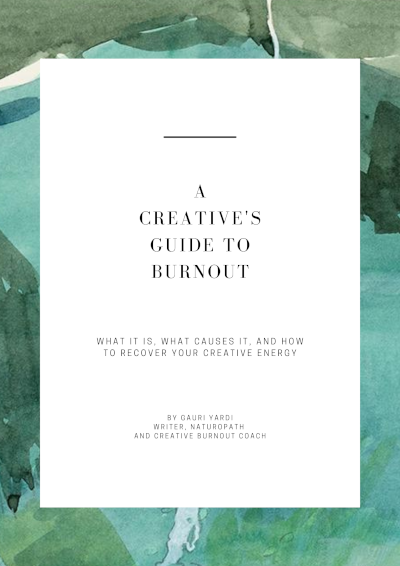How do you know if you’re burnt out?
To help you understand whether you might be burnt out, I've put together a creative burnout quiz. Note that this quiz isn't designed to diagnose burnout; rather, it is intended to help you compare your experience to common expressions of burnout and come to your own conclusion.
Every person's experience of burnout is different. The exhaustion of burnout exists on a continuum and varies in intensity for each individual depending on the daily demands on their energy.
But there are common expressions of exhaustion that we can consider. Let's explore what physical, mental and emotional exhaustion might look like. Note that if your particular experience isn't described below, that doesn't automatically rule out burnout.
Physical exhaustion
Physical exhaustion is typically the easiest type of exhaustion to understand as we've all experienced it at some point. You may feel drained as though you've had a long and stressful day, deeply fatigued or lethargic as if you had the flu, or like you don't have enough fuel in the tank to get you through the day.
It can look like:
finding it more difficult than usual to get out of bed in the morning
sleeping long hours
yawning throughout the day
becoming very sleepy early in the evening
needing to take one or more naps, or
relying on stimulants such as caffeine to get you through the day
Burnout may also have a broader effect on physical health, leading to symptoms such as headaches, difficulty sleeping, unrefreshing sleep, and gut issues like indigestion, constipation, diarrhoea and abdominal pain.
Mental exhaustion
Mental exhaustion can express itself in many different ways and commonly manifests as:
difficulty concentrating
poor memory and recall
cognitive difficulties, or
brain fog and/or trouble with word-finding.
This may look like:
difficulty communicating
avoiding tasks (including your art) because you're finding them more difficult than usual, or
engaging in distracting activities long after you've stopped having fun, e.g. binge-watching, binge-reading or scrolling.
Emotional exhaustion
Emotional exhaustion describes the emotional consequences of mental and physical exhaustion. It could manifest itself as:
low mood
depression
anxiety, stress or tension irritability
anger
cynicism
pessimism, or
dreading your creative work.
Behavioural expressions may include
crying
mood swings
focusing only on the negatives in a situation, or snapping at your loved ones.
You're not lazy
Many tired and burnt out creatives assume that their inability to sit down to their creative work is due to laziness. But if we consider that they may be dealing with a host of physical, mental and emotional symptoms stemming from exhaustion, avoiding creative work starts to look more like self-preservation than laziness. If you have been casting yourself as lazy, this is your invitation to investigate whether that's really true.
This is an excerpt from my free ebook, A Creative’s Guide to Burnout. To keep reading, click the button below to request your copy.
